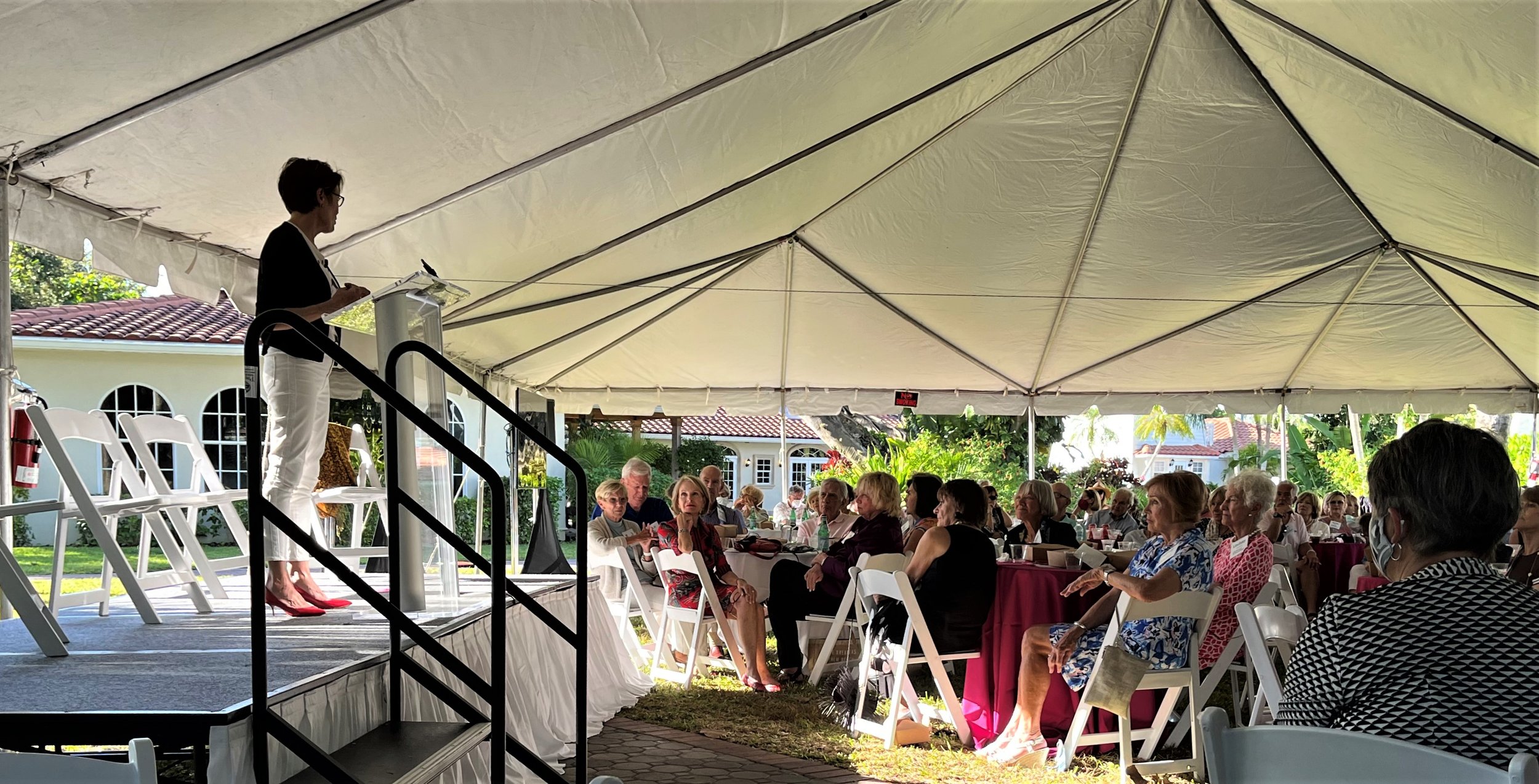Improved patient navigation, offshore options being considered
Stephanie Fraim speaks to a gathering of Planned Parenthood supporters on Dec. 7. (Photo: Author)
Dec. 29, 2021 by David Silverberg
With major challenges to women’s health choices looming in the new year, Planned Parenthood of Florida is already preparing to adapt to a changed political and legal landscape, according to Stephanie Fraim, president and chief executive officer of Planned Parenthood of Southwest and Central Florida.
The changes include renewed and vigorous lobbying of relevant legislators and preparations to serve women’s health needs throughout the region.
Fraim spoke at a “Voices for Planned Parenthood—Let’s Get Loud!” gathering in Bonita Springs on Dec. 7. (Full disclosure: the author was a speaker on a panel at the event.)
“As you know Florida is poised to put in place whatever restrictions the Supreme Court puts in place whether that is a six-week Texas ban or the 15-week ban we heard arguments on last Wednesday or an overturning of Roe,” said Fraim.
“…Make no mistake, [anti-choice advocates] are clearly looking to the legislature to restrict access to abortion care and this legislature and this governor have our rights clearly in their sights,” she told the audience. “Of course we will fight every [anti-choice] law that Florida tries to implement.”
Fraim said Planned Parenthood would be fighting attempts to restrict choice on two fronts. The first was legislative and legal.
“As I said, we’re going to challenge the law that impacts our care but the real battle is going to happen at the ballot box. Right? We need people in our state house and Capitol that actually care about women and people’s health care.”
Fraim urged her listeners to get involved politically, support the Planned Parenthood Action Fund political action committee and in particular to express support for state Rep. Ben Diamond (D-68-St. Petersburg) and Sen. Lori Berman (D-31-Palm Beach County) who on Nov. 23 sponsored the Reproductive Health Care Protection Act (House Bill 709 and Senate Bill 1036) to protect women’s health care.
“On the second front, caring for our patients, getting them care and getting them to care, we will continue as Planned Parenthood to provide every bit of reproductive health care we’ve always provided and provide abortion care up to whatever the law allows, whether that’s six weeks or 15 weeks,” she said. “And, we are at the beginning stages of building one of the largest patient navigation systems in the state, connecting it to one of the largest patient navigation systems in the country.”
Planned Parenthood is putting together teams to help patients get to the health care services they need, she explained. As an example, Planned Parenthood clinics in Oklahoma saw a 500 percent increase in patients when Texas passed its restrictive anti-choice law. Florida’s Planned Parenthood is seeing an increase in Texas patients as well.
“If we lose the right here [in Florida], we will turn that and begin moving patients out of the state to where they need to go,” she said.
As an additional option, “we are thinking about a boat off the east coast of Florida. We seriously are.” A boat could legally provide women’s health services in international waters. Fraim said she had been contacted by a pilot with a float plane who could ferry patients to any vessel.
“I know, it’s horrifying,” she acknowledged. “But this really isn’t a ban on abortion, it’s a ban on safe abortion.”
A Supreme Court decision on Mississippi’s abortion ban is expected in June of next year. A challenge to Texas’ ban on abortions is ongoing, although on Dec. 10 the Supreme Court allowed it to remain in force.
In the meantime Planned Parenthood is actively seeking financial support. Until Dec. 31 all donations up to $500,000 will be doubled, thanks to a matching grant provided by an anonymous donor.
Liberty lives in light
(c) 2021 by David Silverberg
